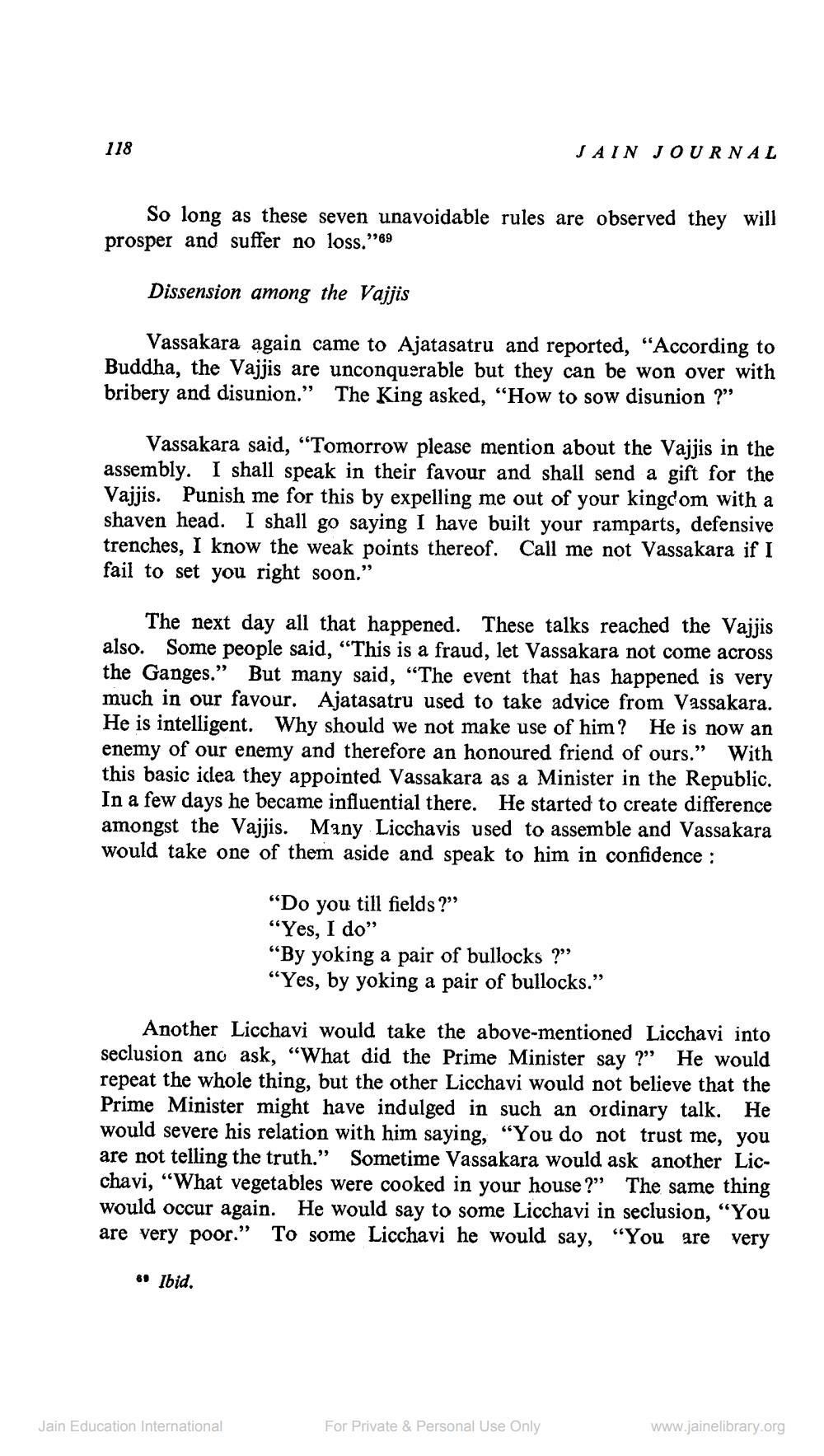________________
118
So long as these seven unavoidable rules are observed they will prosper and suffer no loss."'69
Dissension among the Vajjis
Vassakara again came to Ajatasatru and reported, "According to Buddha, the Vajjis are unconquerable but they can be won over with bribery and disunion." The King asked, "How to sow disunion ?"
JAIN JOURNAL
Vassakara said, "Tomorrow please mention about the Vajjis in the assembly. I shall speak in their favour and shall send a gift for the Vajjis. Punish me for this by expelling me out of your kingdom with a shaven head. I shall go saying I have built your ramparts, defensive trenches, I know the weak points thereof. Call me not Vassakara if I fail to set you right soon."
The next day all that happened. These talks reached the Vajjis also. Some people said, "This is a fraud, let Vassakara not come across the Ganges." But many said, "The event that has happened is very much in our favour. Ajatasatru used to take advice from Vassakara. He is intelligent. Why should we not make use of him? He is now an enemy of our enemy and therefore an honoured friend of ours." With this basic idea they appointed Vassakara as a Minister in the Republic. In a few days he became influential there. He started to create difference amongst the Vajjis. Many Licchavis used to assemble and Vassakara would take one of them aside and speak to him in confidence:
"Do you till fields?" "Yes, I do"
Jain Education International
"By yoking a pair of bullocks ?"
"Yes, by yoking a pair of bullocks."
Another Licchavi would take the above-mentioned Licchavi into seclusion and ask, "What did the Prime Minister say?" He would repeat the whole thing, but the other Licchavi would not believe that the Prime Minister might have indulged in such an ordinary talk. He would severe his relation with him saying, "You do not trust me, you are not telling the truth." Sometime Vassakara would ask another Licchavi, "What vegetables were cooked in your house?" The same thing would occur again. He would say to some Licchavi in seclusion, "You are very poor." To some Licchavi he would say, "You are very
Ibid.
For Private & Personal Use Only
www.jainelibrary.org




